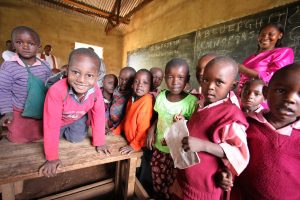For both Teachers and Students, knowing about the Second Cycle Economics Syllabus is very important. For the Syllabus gives detailed information on the pile of What the have to cover to prepare for the GCE exams.
This Economics Second Cycle Syllabus is for students who are offering Economics in the classes of Lower and Upper Sixth.
Download the full Second Cycle Economics syllabus for secondary schools in Cameroon from below.
What is Ecnomics?
Economics is a social science concerned with the production, distribution, and consumption of goods and services. It studies how individuals, businesses, governments, and nations make choices about how to allocate resources.
There are many definitions of Ecnomics and one of the best is that of Loard Lionel Robbins which reads;-
Economics is a science which studies human behaviour as a relationship between ends and scarce means which have alternative uses.
General Presentation of the Second Cycle Economics syllabus
Economics is the study of the efficient use of scarce resources in the production of goods and services to achieve the maximum satisfaction
of economic wants. It enables the learner to develop a clear understanding of the main principles of economic theory and the basic economic
problem of allocating resources. It equally permits the learner to acquire the skills to apply economic principles in seeking solutions to
economic and social problems within his/her locality, Cameroon and the world.
Place of the Syllabus in the Curriculum
This Economics syllabus is designed to help the learners to analyse and explain the basic economic problems in order to allocate resources
more efficiently.
It permits them to compare the factors of production in order to establish their interrelationship in the production process and to design simple projects on how to set up and organise a business unit within their localities.
Also, it enables them to assess the importance of financial transactions in solving economic and social problems in Cameroon and the World.
They will be able to evaluate the importance of Cameroon’s economic relationship with the rest of the world. In addition, it permits them to synthesize economic growth and development strategies in order to contribute to Cameroon’s economic development vision.
Contribution of the Teaching Syllabus to the Broad Area (Field) – of – Learning
Economics as a social science contributes to the study of economic and social phenomena in the society.
It analyses situations by identifying the various factors involved in them and the interrelationship between these factors. This permits the learner to reason accurately and objectively about economic and social matters.
Contribution of the Teaching Syllabus to One or More Areas-of-Living
This syllabus handles issues related mainly to economic life as the broad areas of living.
It promotes a lasting learner’s interest in economics
and economic related issues.
It also develops in the learner awareness of some major issues of economic policy within his/her locality, the
national economy and the world as a whole.





